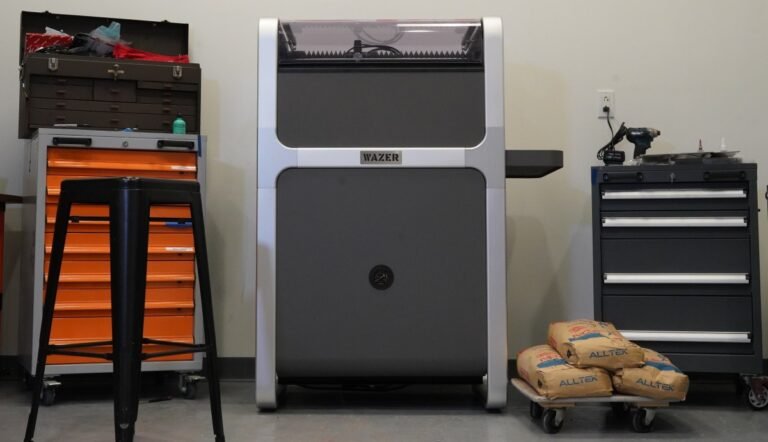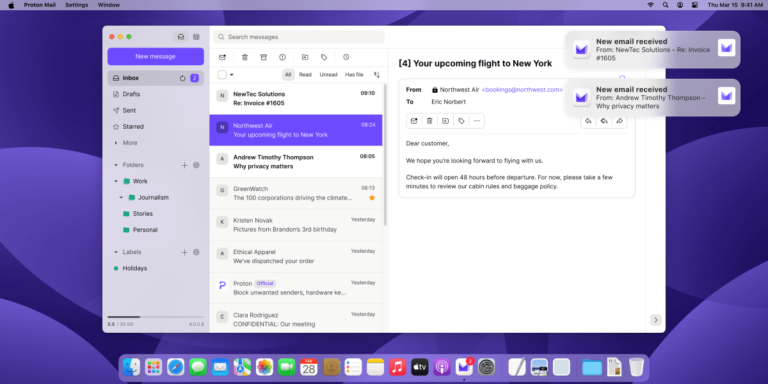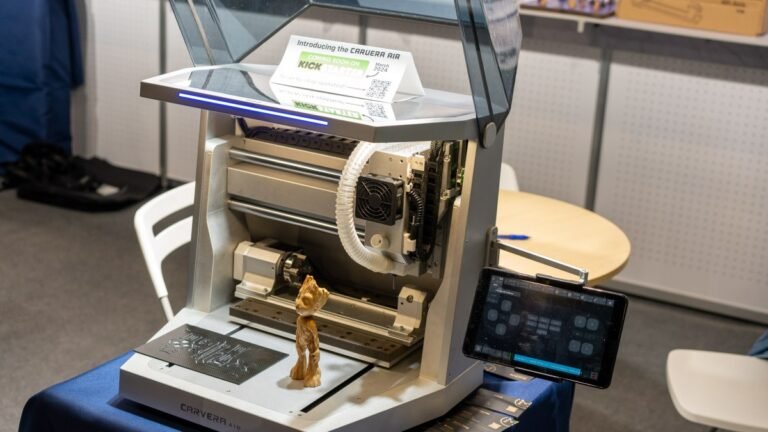
Before Wazer came along, “water jet cutting” and “affordable” didn’t belong in the same sentence.
For existing Wazer Desktop users, the company says the transition to the Wazer Pro will be seamless.
Additionally, Wazer offers a trade-up program, enabling current customers to receive a significant discount on the Wazer Pro by trading in their old machines.
Priced at $18,999, the Wazer Pro remains significantly more affordable than traditional water jet cutters, costing upward of $100,000.
With the launch of the Wazer Pro, Wazer continues to make life interesting for the water-cutting incumbents.

Almost a decade ago, Desktop Metal was one of the early darlings in accessible 3D printing in metal.
Last year, Stratasys tried to merge with Desktop Metal in a $1.8 billion deal, but the deal fell through, and these days, Desktop Metal is worth less than $210 million.
In June 2020, he split off and started his own thing — Fluent Metal — which is taking a different technology path than Desktop Metal’s technology.
It accomplishes this through liquid metal printing technology, which it hopes will set a new standard in additive manufacturing.
“In the near term, Fluent Metal will spark the imagination of designers, engineers, and technologists to consider how rapid, on-demand production of custom metal parts could transform their capabilities.

Proton Mail, the end-to-end encrypted (E2EE) email service from Swiss company Proton, is now officially available via a dedicated desktop app some three months after debuting in beta.
However, despite previous claims that the client would be available to all Proton Mail users in early 2024, the company has decided to restrict it to paying users.
In related news, Proton is also making its email service available via a standalone Linux desktop app, launching today in beta.
It’s worth noting that while Proton Mail has been available to desktop users from the company’s inception, initially through the browser and more recently a “bridge” which opened up access to Proton Mail through third-party desktop clients such as Apple Mail and Outlook, today’s news brings a dedicated Windows and MacOS app to the fray.
This means that emails can be cached and accessed when offline, while users can funnel into Proton Mail directly from the MacOS dock or Windows Start menu.

Light therapy lamps have become increasingly popular as a result.
These products rely on the visible light spectrum, in a bid to mimic the sun’s impact for those of us who spend more of our waking hours in front of a computer than we care to mention.
More recently, use of the “near-infrared” (NIR) segment of the light spectrum has been growing in popularity as a potential alternative to visible light.
As the name implies, the segment sits between infrared and visible light, at around 600 and 1000 nanometers.
That said, it’s probably still safe to suggest that the jury is still out on a lot of this stuff.

In the depth of the pandemic, 500 or so backers chipped in to make Makera’s Carvera Kickstarter campaign, a fully automatic desktop CNC machine, hit its goal.
At CES in Las Vegas, Makera showed off the Carvera Air, its baby brother.
With almost the same work space, but less a few of the fancy features of its larger sibling, Makera Air is a (slightly) different beast, even better suited to learning the basics of CNC manufacturing.
“Technology is the future,” Erdreich asserted.
“And the future needs creators, not just consumers.”Erdreich has a clear vision for Makera and is excited about the company’s direction.

Google is launching a few updates to Chrome on desktop this week that aim to make your browsing experience a bit safer and give you more control over your browser’s memory usage.
The marquee feature for this update is proactive Safety Check.
Starting with version 120, which actually launched a few weeks ago, desktop Chrome’s Safety Check on desktop will now run in the background and send out proactive alerts when it detects if a password in Chrome has been compromised or when an extension you’ve installed is malware.
It’ll also remind you to update Chrome.
Google is also highlighting two other updates to Chrome on desktop today.

Proton Mail finally has a native desktop app, rolling out now in beta for some users on Windows and MacOS.
The encrypted email service has, of course, been available to desktop users since its inception nearly a decade ago — first through the web, and latterly via a “bridge” that opened access to Proton Mail accounts through desktop clients such as Outlook, Thunderbird, and Apple Mail.
The desktop app provides offline access and is available directly from the Windows Start menu or MacOS dock, while it also bundles access to Proton Calendar, the encrypted calendar app Proton launched back in 2019.
Alongside the new app, Proton also unveiled a handful of new features that will be available to Proton Mail users on both the web and desktop.
Privacy pushFounded in 2014, Proton initially only offered encrypted email, but the Swiss company has expanded into VPNs, a password manager, calendar and a cloud storage service called Proton Drive which also has its own desktop app.

Tech startups are always looking for ways to get their products in front of as many consumers as possible. This is where paid advertising comes in. Paid advertising can be…

Planet Computers is synonymous with high-end, tactile mobile keyboards and the Gemini. Astro Slide 5G, their 2020 product, continues in this vein but with a modern twist: it utilises 5G…

The U.S. government’s cybersecurity agency has warned that criminals could use legitimate remote desktop software to compromise federal agencies, given that such software poses a low barrier to entry for…













